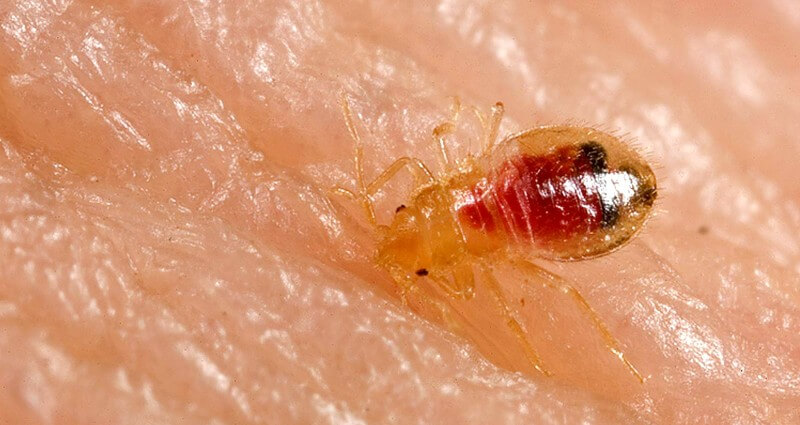King-size Bed Pest Exterminator Cincinnati: Pro Bug Solutions
King-size Bed Pest Exterminator Cincinnati: Pro Bug Solutions
Blog Article
Types of Parasite Control: Which Approach Is Right for Your Problem?
When encountered with a parasite problem, the option of a proper method for bug control is critical in effectively managing the situation. From chemical treatments to organic solutions, there exists a variety of strategies that can be employed to attend to various sorts of pests. Each technique includes its very own collection of factors to consider and advantages, making the decision-making process a nuanced one. Understanding the nuances of each method and evaluating their compatibility with the particular insect infestation available is vital for achieving lasting success in parasite management. By discovering the numerous kinds of bug control techniques readily available, people can make informed decisions customized to their unique scenarios, making certain a much more sustainable and effective result in pest eradication.
Chemical Insect Control
Chemical pest control includes the use of artificial or naturally obtained chemicals to manage and eliminate pest populations efficiently. This method is generally utilized in farming, forestry, and household settings to deal with a wide variety of bugs, consisting of rodents, weeds, and insects. Making use of chemical pesticides can offer fast and targeted options to pest infestations, making it a popular choice for several people and businesses.
One of the essential benefits of chemical parasite control is its ability to quickly remove parasites, decreasing the danger of damage to plants, residential or commercial property, and human health. By utilizing particular chemicals that target specific bugs, this approach can successfully control invasions while minimizing injury to helpful organisms and the atmosphere when applied correctly.
However, the use of chemical bug control likewise raises problems regarding possible adverse effects on non-target species, water resources, and human wellness. It is vital to follow safety guidelines, use chemicals responsibly, and consider different bug control approaches to minimize these threats and guarantee lasting pest monitoring practices.
Organic Insect Control
Biological insect control, also called biocontrol, uses living microorganisms to manage and decrease parasite populaces naturally. This approach harnesses the power of nature to regulate pests without the requirement for artificial chemicals. Biocontrol can entail the introduction of natural opponents of the pest types, such as predators, bloodsuckers, or pathogens, to subdue insect populaces. By using the pest's all-natural predators or pathogens, organic bug control provides a ecologically pleasant and lasting option to pest administration.

Mechanical Parasite Control
Utilizing physical and manual methods to manage parasite populaces, mechanical parasite control provides an alternate technique that does not rely on using living organisms or artificial chemicals. This method involves making use of barriers, catches, or various other tools to physically hinder or get rid of bugs. By obstructing insect entrance points or establishing catches to catch them, mechanical parasite control can successfully minimize problems without presenting chemicals right into the environment.
One typical instance of mechanical parasite control is making use of mesh screens on doors and windows to stop bugs from getting in structures. This basic yet reliable technique works as a physical barrier, maintaining bugs out while enabling for appropriate air flow. Furthermore, devices like mousetraps, fly swatters, and ultrasonic repellents drop under the mechanical insect control group.
While mechanical pest control techniques can be labor-intensive and need normal monitoring and maintenance, they use a sustainable and eco-friendly option for taking care of pest infestations. By integrating various mechanical methods, homeowner can produce a detailed insect control strategy that lessens dependence on chemical pesticides.
Physical Parasite Control

Some usual physical bug control methods consist of the usage of barriers such as internet or screens to protect against insect entrance, catches to catch and remove pests, and hand-picking to literally eliminate bugs from plants or structures. In addition, strategies like heat treatments can be made use of to control pests like bed insects by elevating the temperature level to levels that are lethal to the bugs.
Physical parasite control is particularly beneficial in integrated insect monitoring (IPM) techniques, where numerous bug control approaches are incorporated for effective insect management while decreasing using chemicals. By utilizing physical parasite control methods, individuals can efficiently deal with bug infestations with marginal news environmental effect.
Integrated Bug Management
When implementing physical bug control approaches as component of insect management methods, Integrated Bug Administration (IPM) emerges as a comprehensive method that leverages numerous techniques to properly control pest populations. IPM concentrates on lasting avoidance of insects with a combination of biological, social, physical, and chemical devices customized to certain insect concerns. By integrating several control methods, IPM intends to minimize the risks related to insects while likewise reducing reliance on chemical remedies.
One secret facet of IPM is the focus on tracking and analyzing pest populations to identify one of the most suitable control techniques. This aggressive approach enables early intervention and targeted strategies, bring about more reliable pest administration. Additionally, IPM advertises eco-friendly practices by prioritizing non-chemical control approaches and only making use of pesticides as a last option.
Verdict

By making use of the bug's all-natural killers or microorganisms, biological parasite control offers a sustainable and ecologically friendly option to pest administration. - Kings pest control Cincinnati
Making use of hand-operated and physical methods to take care of pest populations, mechanical bug control provides a different strategy that does not count on the use of living microorganisms or synthetic chemicals.An effective technique to managing pest populaces without depending on chemical or biological methods involves the usage of physical bug control techniques.When executing physical pest control methods as component of pest management techniques, Integrated Insect Management (IPM) arises as an extensive approach that leverages different methods to properly regulate pest populations. Chemical bug control involves the usage of chemicals, organic parasite control makes use of all-natural killers, mechanical insect control includes physical barriers, physical pest control includes capturing or removing bugs, and integrated pest management combines multiple techniques for an all natural approach to pest control.
Report this page